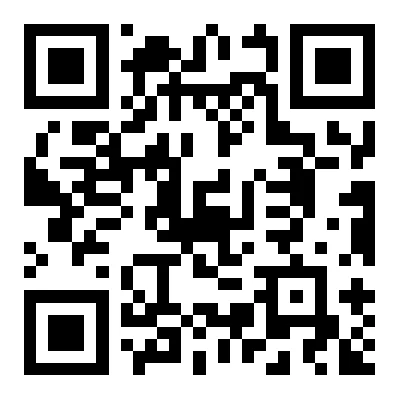Travel prepaid card
Travel recharge refers to the use of credit cards or prepaid cards to pay travel-related expenses and obtain corresponding travel points or preferential payments in order to obtain more travel benefits and financial concessions. The appearance of this way can not only facilitate the payment of tourists, but also improve the travel experience and consumption efficiency of tourists.
The benefits of tourism card charging are obvious. The first thing is that you can get more and richer tourism benefits and preferential payments, such as accommodation discounts, scenic spot tickets discounts, free transfers and so on. Secondly, you can also exchange more benefits by accumulating travel credit card points or using prepaid cards to cash back, so as to improve the actual consumption efficiency of travel. In addition, the travel card can also improve travel safety and avoid the risk of carrying cash.
In the process of using travel cards, tourists need to pay attention to some matters. First of all, choose a reliable and safe credit card or prepaid card service provider to ensure the safety and experience of personal information. Secondly, we need to pay attention to the rules and redemption methods of points rebate, and use and redeem points in time to avoid expiration. Finally, it is necessary to know whether there are additional expenses and restrictions on use, so as to avoid increasing unnecessary consumption pressure.
Prepaid cards can be consumed and cashed on POS and ATM machines with UnionPay logo posted inside and outside China; Can enjoy the cardholder service provided by China UnionPay and card issuers according to the contract; Cardholders can recharge their cards repeatedly and enjoy services such as returning the balance in the cards.
As the name implies, a prepaid card is a kind of card that is purchased first and then consumed. There are the following types:
UnionPay standard travel prepaid card products refer to the demand for domestic and foreign tourists, and meet the UnionPay standard. The billing currency of the card products is determined by the card issuer. After legal entities and natural persons purchase UnionPay travel cards by cash, check, transfer and other ways recognized by the card issuer,
Travel card
(1) UnionPay standard travel prepaid card
Travel Cards, that is, travel cards.
1. Tongji Unionpay Standard Travel Prepaid Card
Issue date: September 28th, 2006. Card issuer: Tongji Long Group.
China UnionPay and Tongjilong Company jointly launched the first UnionPay standard prepaid card. From September 28th, the UnionPay standard prepaid card issued by Tongjilong Company will be used on the worldwide UnionPay network. At the initial stage of business opening, Tongjilong Company will take the lead in issuing UnionPay standard prepaid cards in Hong Kong and sell them to the outside world through major local banks, travel agencies and Tongjilong service outlets. The characteristics of this card include: background registration system, support for signature and password transaction verification, loss reporting, and so on. At the same time, 24-hour customer service hotlines have been set up in Chinese mainland, China, Hong Kong and the United States, so that cardholders can ask questions related to using the card at any time through their mobile phones or landlines. The launch of Tongjilong UnionPay standard prepaid card is of milestone significance in the internationalization process of China UnionPay. It is not only the first prepaid card issued by UnionPay worldwide, but also a brand-new product launched by UnionPay to the payment market. It breaks through the application procedures and time restrictions of the original credit card and debit card. It will provide cardholders with more convenient, fast and safe payment services, and will also play a positive role in promoting the economic, cultural and business exchanges between China and other countries.
Salary card
Payroll Cards, such as transfer, cheque and even salary bags filled with cash, are all ways for enterprises to pay salaries to their employees. However, there has been a prepaid card in the United States, which can not only withdraw money, but also spend money by credit card.
Nowadays, well-known enterprises that have adopted salary cards include McDonald's, Blockbuster, Domino's, etc. Nowadays, in the United States, salary cards are issued to employees by card issuers through employers, and employees return the cards after leaving their jobs. Salary cards can be used as cash cards, with functions such as withdrawal and transfer, and can also be used for similar debit card consumption. You only need to swipe your card at the checkout counter and enter the withdrawal password, or sign the bill after swiping your card to complete the transaction. The employers value the cost-saving effect of the salary card. For example, the cost of writing a check by an enterprise is as high as 2 dollars, but for office workers and even SOHO people, the salary card can save the trouble of spending time rolling checks in the bank. The earliest salary card in China is the Fuli card, which integrates benefits and gifts, but does not have the function of withdrawing cash.
Compared with paychecks, paycards are a cheaper alternative. Paycards enable employees to use their salaries in a variety of ways, depending on the specific types of paycards. Salaries are deposited into paycards accounts by direct deposit, and employees can use this card to cash out or spend money on ATM machines. An obvious feature of paycards issued by banks is that they do not need to market directly to customers, but to employers, who in turn encourage their employees to receive their salaries by using paycards.
Payroll card is a special form of stored-value card, which simplifies the payment process to purchase or cash withdrawal. Payroll card uses an open system. After some banks issued payrolls for a period of time, Visa and MasterCard claimed in 2001 that they would use a lot of resources to promote the huge development of this product. With only one payroll card, employees can only withdraw cash from ATMs. There are also some cards that allow cardholders to spend money at POS terminals by entering passwords. These kinds of cards still exist in the market today, but many payroll cards now bear the logo of Visa or MasterCard, which enables cardholders not only to withdraw cash from ATMs, but also to spend money or Cash Back in retail stores like traditional debit cards. Compared with single payroll cards without the logo of Visa or MasterCard, these payroll cards immediately won a large number of cardholders.
gift card
Multifunctional Gift Cards, namely gift cards, are pre-paid card-based products, and the recipients of gift cards can use them on the brand networks that support the cards. Gift cards have a fixed face value (such as $25, $50 and $100), which can be purchased through bank channels (such as branches), telephone, internet or payment card networks that issue gift cards, and are anonymous and cannot be recharged.
Gift cards were originally designed to replace paper gift vouchers. With the continuous development of the payment industry, gift card issuers also use a variety of customized personalized functions to meet the changing needs of givers and recipients. For example, the theme gift cards of "Happy Birthday" and "Happy Holidays" can provide a certain degree of personalized design for the purchased gifts.
Gift cards can bring many conveniences. First, compared with paper gift certificates, gift cards are easy to sort and settle. Second, gift cards can store residual value, while gift certificates can only be used at one time. Third, gift cards are easy to issue and are less likely to be forged than gift certificates. Fourth, the system can obtain the consumption data of merchants when processing gift cards, which is beneficial to merchants to carry out more targeted marketing activities. Merchants have achieved greater effectiveness by using gift cards.






